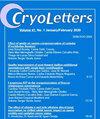Cloning, expression, purification and functional study of low-temperature chitinase PBCHI5 gene from marine-derived photobacteria.
IF 0.9
4区 生物学
Q3 BIOLOGY
引用次数: 0
Abstract
BACKGROUND Chitin is the second largest carbon source on the earth, and chitosan oligosaccharides produced by its degradation have good application prospects in medicine, cosmetics, and agricultural production. OBJECTIVE The discovery of a chitinase with high efficiency, high stability and clear degradation mechanism is of great help to promote the research of chitin derivatives and the development of the industrial chain. MATERIALS AND METHODS In this experiment, a low-temperature chitinase-producing strain Photobacterium sp. LG-29 was isolated from deep-sea mud in the Bohai Sea, and studied by means of molecular biology, biochemistry and bioinformatics. RESULTS Purification of chitinase yielded an enzyme solution with a concentration of 0.918 mg per mL and a specific activity of 21.036 U per mg. The optimum action temperature is 35 degree C, and it is still active at 4 degree C, showing low-temperature enzymatic activity, and also has certain thermal stability. The optimum pH is 8.0, and it maintains more than 70% of the enzyme activity at pH 11, which is very stable in an alkaline environment. Mn2+, Ca2+, and Mg2+ are the main activators of enzymes, while Fe2+, Zn2+, etc. have extremely significant inhibitory effects on enzymes. The Km and Kcat of chitinase were determined to be 269.05 μmol/L and 0.49 min-1, respectively. Chitinase PbCHI5 has both endonuclease and exonuclease activity. The theoretical pI of the enzyme is 4.16, which is a stable hydrophilic protein. CONCLUSION This experiment laid a theoretical foundation for the development and utilization of new low-temperature chitinases. Doi.org/10.54680/fr23510110212.海洋光细菌低温几丁质酶 PBCHI5 基因的克隆、表达、纯化和功能研究。
背景 甲壳素是地球上第二大碳源,其降解产生的壳聚糖低聚物在医药、化妆品和农业生产中具有良好的应用前景。 目的 发现一种高效、稳定、降解机理明确的几丁质酶,对促进几丁质衍生物的研究和产业链的发展有很大的帮助。 材料与方法 本实验从渤海深海淤泥中分离到一株低温产甲壳素酶的光杆菌 LG-29,并通过分子生物学、生物化学和生物信息学等手段对其进行了研究。 结果 纯化几丁质酶后得到的酶溶液浓度为 0.918 毫克/毫升,比活度为 21.036 U/毫克。最适作用温度为 35 摄氏度,在 4 摄氏度时仍有活性,显示出低温酶活性,并具有一定的热稳定性。最适 pH 值为 8.0,在 pH 值为 11 时仍能保持 70% 以上的酶活性,在碱性环境中非常稳定。Mn2+、Ca2+ 和 Mg2+ 是酶的主要活化剂,而 Fe2+、Zn2+ 等对酶有极其显著的抑制作用。经测定,几丁质酶的 Km 和 Kcat 分别为 269.05 μmol/L 和 0.49 min-1。几丁质酶 PbCHI5 同时具有内切酶和外切酶活性。该酶的理论 pI 为 4.16,是一种稳定的亲水性蛋白质。 结论 本实验为开发和利用新型低温几丁质酶奠定了理论基础。Doi.org/10.54680/fr23510110212.
本文章由计算机程序翻译,如有差异,请以英文原文为准。
求助全文
约1分钟内获得全文
求助全文
来源期刊

Cryo letters
生物-生理学
CiteScore
1.80
自引率
10.00%
发文量
50
审稿时长
1 months
期刊介绍:
A bimonthly international journal for low temperature sciences, including cryobiology, cryopreservation or vitrification of cells and tissues, chemical and physical aspects of freezing and drying, and studies involving ecology of cold environments, and cold adaptation
The journal publishes original research reports, authoritative reviews, technical developments and commissioned book reviews of studies of the effects produced by low temperatures on a wide variety of scientific and technical processes, or those involving low temperature techniques in the investigation of physical, chemical, biological and ecological problems.
 求助内容:
求助内容: 应助结果提醒方式:
应助结果提醒方式:


